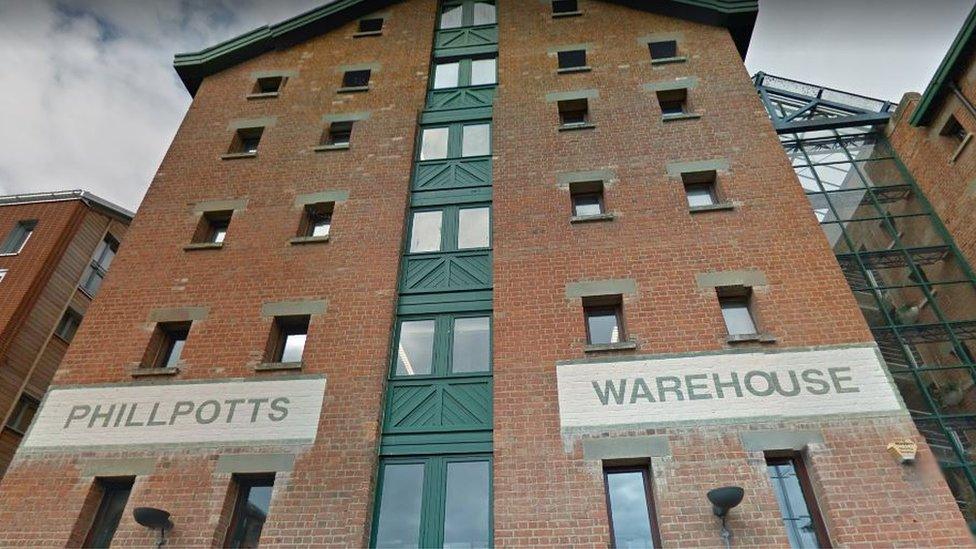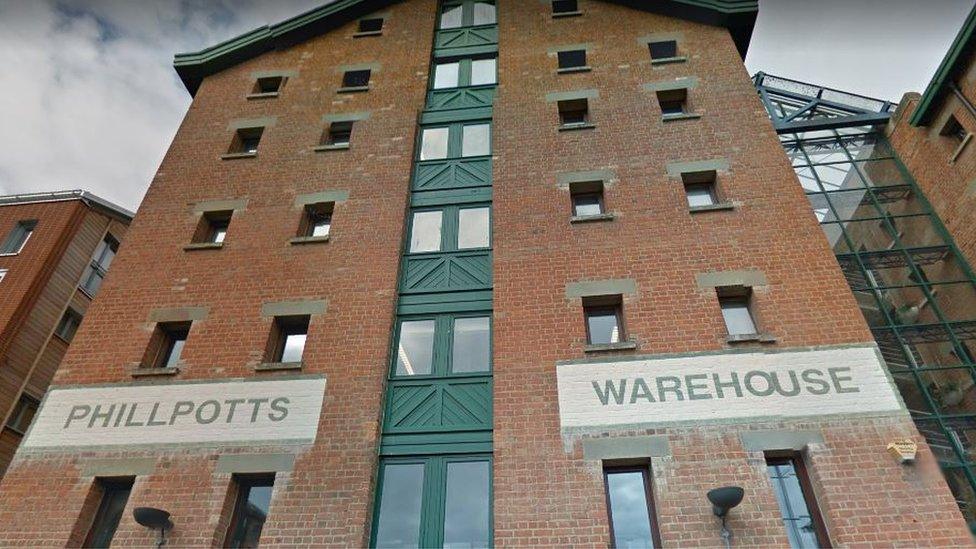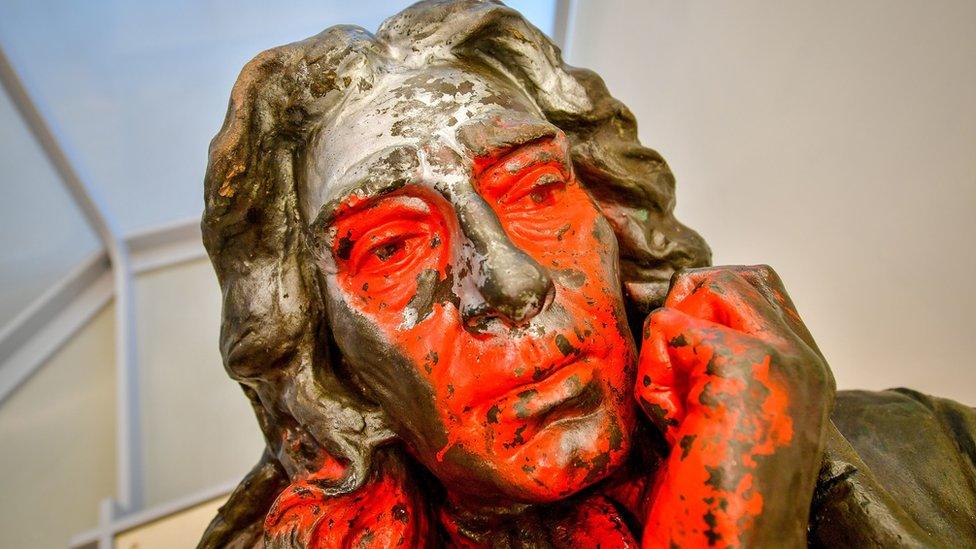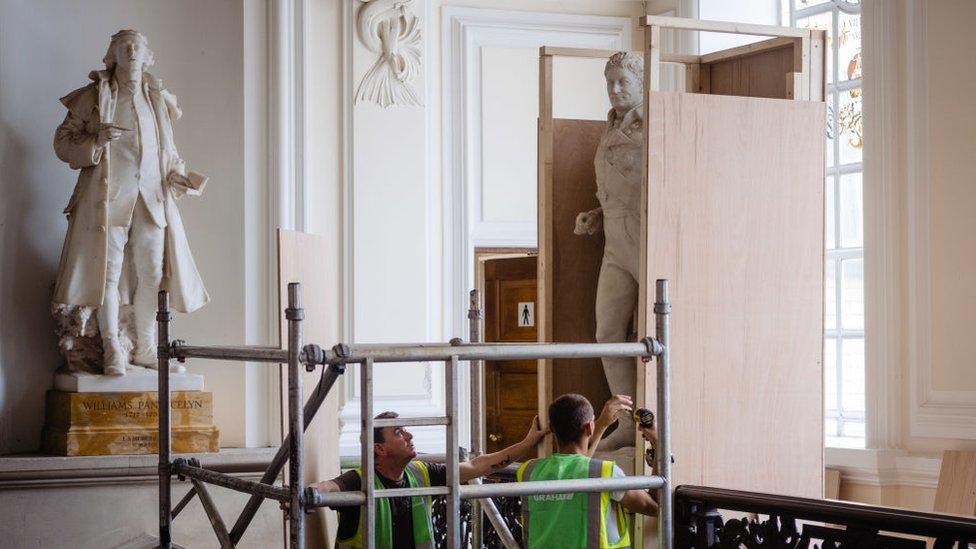Gloucester: Review of slave trade-related monuments due
- Published

Phillpotts Warehouse is named after Thomas Phillpotts, who was involved in the slave trade
A review of all monuments, statues and plaques in Gloucester connected to the slave trade and plantation ownership is to be published next month.
It was undertaken by a Race Relations Commission set up by the city council and could lead to some being renamed or removed.
Bakers Quay and Phillpotts Warehouse are among the areas being considered.
Councillor Andy Lewis, from Gloucester City Council, said he hopes the report will improve the lives of black people.
'Learn from history'
"Let's discuss these things and learn the history to teach future generations about it," said Mr Lewis, a Conservative councillor.
"If you don't learn from history, you repeat it."
Councillor Terry Pullen said the Labour group instigated the review in a council motion in recognition of the Black Lives Matter Campaign, following the killing of George Floyd in the US.
He said: "We recognise that generally Gloucester has a good record in race relations, but too many black people still experience racism and discrimination in our city, and sadly institutional racism still exists in many of our institutions.
"We know that there are monuments, statues and buildings in Gloucester that are connected with the slave trade and we need to carefully consider removing or renaming them."
A spokesperson for Gloucester City Council said the majority of the monuments are not actually owned by the council, so they can only recommend that actions be taken.
A full public consultation will also take place before any decision is made about the monuments, statues and plaques in the city.

Follow BBC West on Facebook, external, Twitter, external and Instagram, external. Send your story ideas to: bristol@bbc.co.uk , external
Related topics
- Published11 July 2020

- Published4 June 2021

- Published26 November 2020
